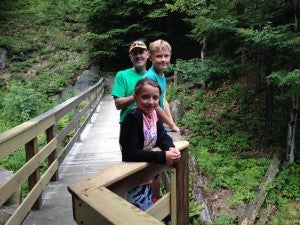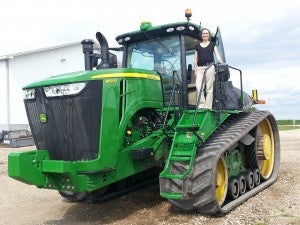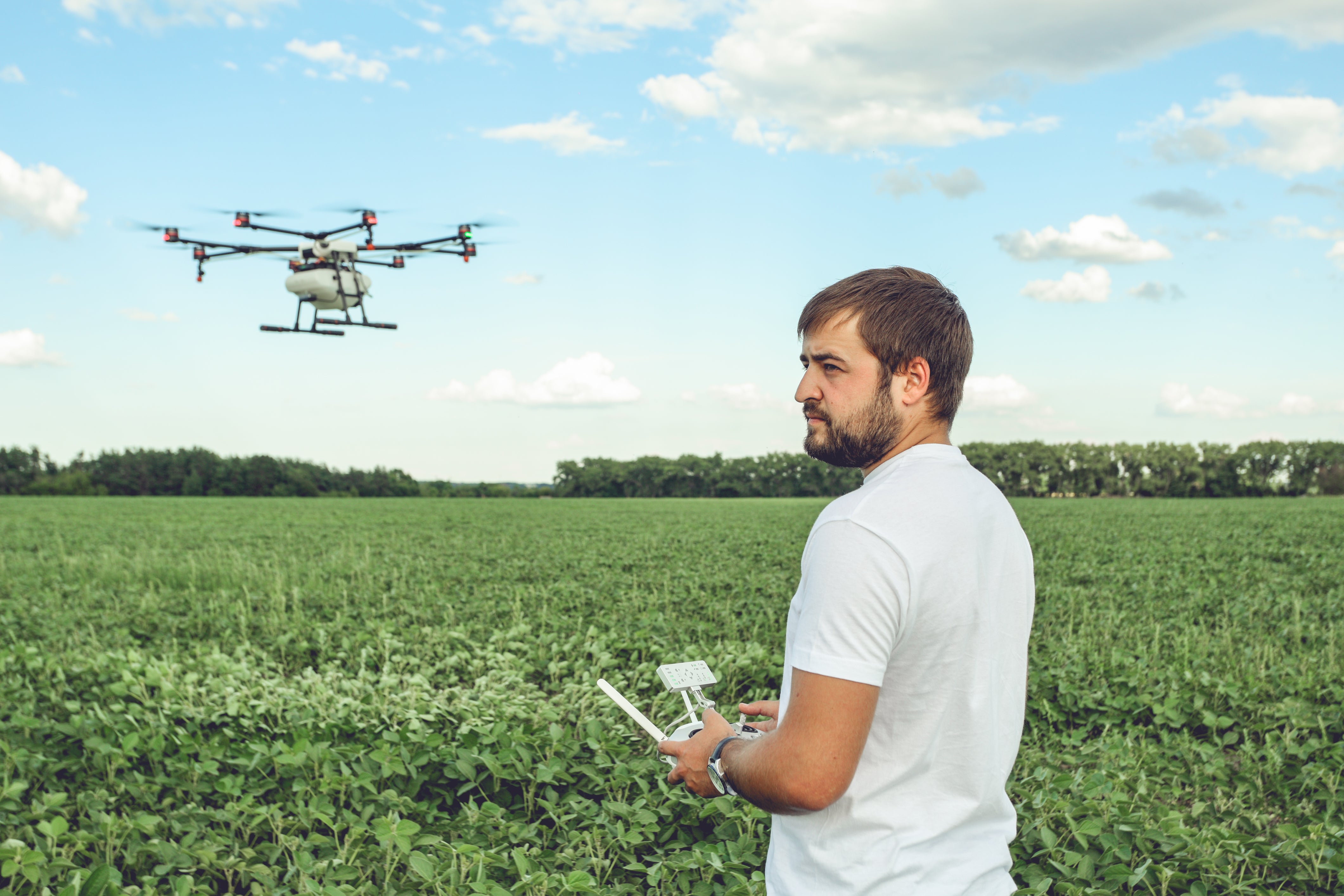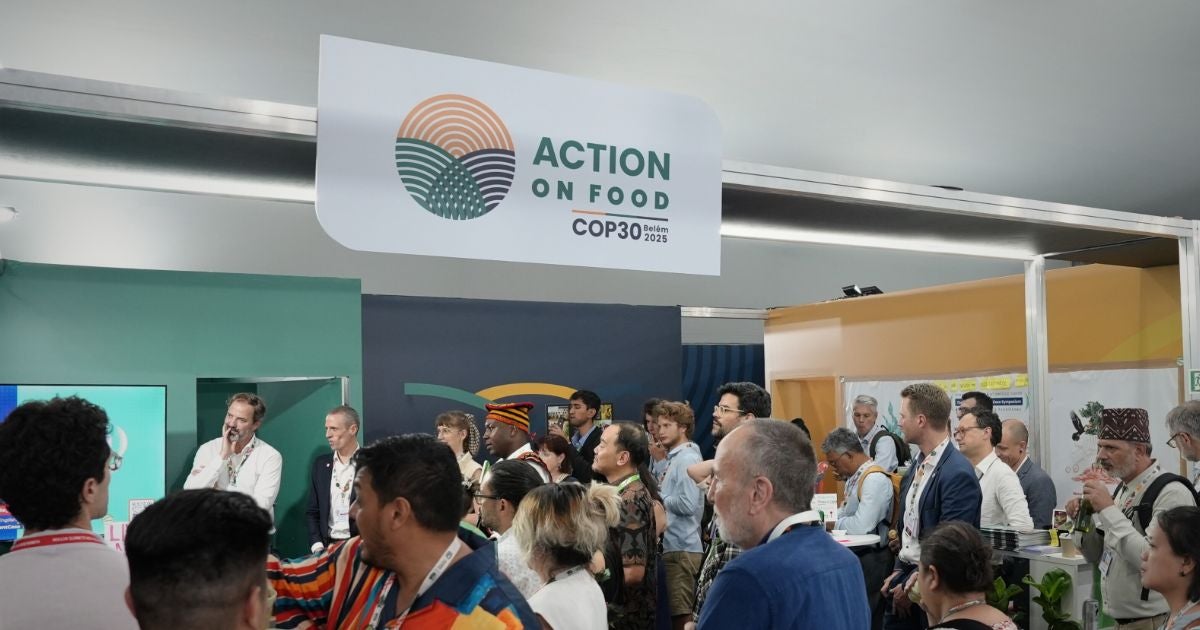Nature inspired my career in conservation, but farmers and family keep me going

Whether I’m out shopping, preparing a meal for my husband and 10 year-old twins, or visiting a farm with one of our agricultural partners, I’m continually reminded of why I’m so passionate about agriculture. The food supply chain touches all parts of our lives, and my job gives me the opportunity to make sure the farm to plate journey is as sustainable as possible.
Growing up in Connecticut, I spent a lot of time exploring the outdoors and I’ve always had a deep love for animals. Although most of my time in nature is now spent protecting it, I still find the time to run outside every morning before I wake up my kids. Along with all of the farmers and partners I work with, my children – and their cousins (also twins, born on the same exact day as mine) – are the ones keeping me dedicated to building a sustainable future.
Here’s why I couldn’t imagine working anywhere else.
Conservation is my perfect career
In high school I was lucky to learn from some great science teachers and mentors, and I was really engaged in my school’s environmental club. By the time college came around, my passion for conservation was front and center so I pursued a certificate in environmental studies from Princeton University.
I knew I wanted to work in the environmental field after graduation, but I had no idea how to focus my interests. So before diving into the job field I spent three months on a cross-country biking trip from Seattle, Washington to Washington, DC, camping and sleeping on a lot of hard community center floors with a group of ten people who started off as strangers and became fast friends. Seeing the diversity of the country – the land and the people — from such an intimate perspective was a watershed moment in my commitment to land conservation.
I was lucky to be able to try out a few different jobs in the environmental sector before landing at EDF in early 2001.
No guns or lawyers needed

One of my initial ag projects was working with dairy farmers in Lancaster County, Pennsylvania – they exposed me to the challenges, complexities, and depth of commitment required in farming. Farming wasn’t just their job, it was their way of life.
After working in Lancaster for a year, one farmer revealed to me that he wasn’t sure if he should bring a gun or a lawyer to our first meeting.
We both started with a lot of misperceptions and reservations, but by letting down our guards, we realized that we had a lot of the same goals. We are both committed to stewardship of the land, to sustaining both productivity and resilience.
Today I visit farms of all sizes – but I never cease to be impressed by farmers’ breadth of knowledge and their resiliency in dealing with challenges such as extreme weather.
Uncommon bedfellows
When I first started at EDF, I never would have imagined that I’d help a major wholesaler and retailer of fertilizer like United Suppliers develop a sustainability program, or work with Smithfield Foods, Inc. to reduce the environmental footprint of the grains it feeds its hogs.
But these companies are committed to lessening the impact of food production, and the economics of conservation are compelling. The approach to get companies engaged is working – and I can’t wait to get to work in the morning.
Scaling up successes
In the future, I hope the sustainability programs that we’re developing with our ag partners and food companies can be replicated more broadly. I’d like to see the intersection of responsible business practices and environmental outcomes become the norm; and as a result, to create an agricultural system that is both economically and environmentally sustainable.
During a time when consumers are becoming increasingly curious about the origins and production of their food, it’s imperative that companies reduce their environmental footprint by maintaining the quality and quantity of water and reducing greenhouse gas emissions when they’re producing staple ingredients such as corn, wheat and soybeans.
My job has evolved a lot over my almost 15 years at EDF, spanning environmental science and policy, nutrient use efficiency, agricultural sustainability, the food supply chain, USDA conservation programs and precision agriculture. But I’ve never been as excited about the future of agriculture as I am today. I can’t wait to see what the next 15 years will bring.












